- Oct 3, 2018
- 2,531

1998.03.01
아리랑, 아리랑, 아라리요...아리랑 고개로 넘어간다. You are going over Arirang hill.
나를 버리고 가시는 님은십리도 못가서 발병난다. My love, you are leaving meYour feet will be sore before you go ten ri.
청천하늘엔 잔별도 많고,우리네 가슴엔 희망도 많다. Just as there are many stars in the clear sky,There are also many dreams in our heart.
저기 저 산이 백두산이라지,동지 섣달에도 꽃만 핀다. There, over there, that mountain is Baekdu Mountain,Where, even in the middle of winter days, flowers bloom.
Yet, hope was never lost. On the occasion of the March 1st Movement, President Kim emphasized the need for the two Koreas to reunify. "The impact of colonialism has never left our peninsula, none more reminding than the physical barriers that separate us as a people. Nothing more reminding of our continued battle of spirit and mind, to see the reunification of our people. I shall never allow, nor shall I ever permit, the conditions that absolve permanent peace on the Korean Peninsula. I shall spend every resource we have to ensure that we can reunify the Korean people and that our families live in peace and harmony from Mount Paektu to Jeju-do, from Dokdo to Pyongyang, the Korean Peninsula shall be whole, the Korean people shall be reunified, and the Korean race under the sovereignty of none but their own. I hope that North Korea will cooperate and interact with us and work towards this goal. On this occasion I make a plea to our brothers and sisters, join us, let us end the physical scar that rips this peninsula, the home of our ancestors, and begin to heal it." - President Kim Dae-Jung, of the Republic of Korea. The stage was set and in South Korea, a dwindling opportunity for a real chance of reunification charged by President Kim.

1998.03.02
As devastating floods ravaged the country in 1995, arable land, harvests, grain reserves, and social and economic infrastructure were destroyed Across the river billions of tons of water flood as the torrential rans caused devastating floods. Over 30% of the country was affected by the floods. The rains came on the cusp of an economic decline due to the collapse of the communist global order. The destruction of crop lands and harvests was not the only issue. States large emergency grain reserves stored underground had been uprooted and lost. The National Intelligence Service estimated that at least 1.5 million tons of grain reserves had been lost. Followed up by major flooding in 1996 and a drought in 1997. The damage to infrastructure such as hydropower plants, coal mines, and transport facilities meant that major shortages would plague the country. The main plants broke down and the oil needed to run them. The North would lose 85% of its generation capacity as a result of the floods. The great famine forced the regime and its people to change in fundamental and unanticipated ways. Opening the door to a future not seen before.
Only about 20% of North Korea's mountainous terrain is arable land. Much of the land is only frost-free for six months, allowing only one crop per year. The country has never been self-sufficient in food, and many western experts considered it unrealistic to try to be. Due to North Korea's terrain, farming is mainly concentrated among the flatlands of the four western coastal provinces. This allows for a longer growing season, leveled land, substantial rainfall, and well-irrigated soil which permits the high cultivation of crops. Along with the western coastal provinces, fertile land also runs through the eastern seaboard provinces. Travel between provinces and even within provinces is prohibited and the control of resources means it is not adequately shared either.
The Fall of the Soviet Union would have profound consequences on North Korea. From cheap oil imports to financial capital injected by Moscow to prop up the regime. The flow of imports of agricultural equipment and support would disappear and without an alternative source the energy and food markets would slowly crumble without assistance. It is estimated that energy imports fell by 75% after 1991. The governments inflexibility to respond only prolonged and increased in devastation the crisis unfolding. The spiraling downturn with import/export freewill hit the country hard. A massive flood would hit the North as well, destroying infrastructure, arable land, and communities. The flooded coal mines would require electricity to operate the pumps to clear them. However the energy crisis delayed the process and the shortage of coal worsened the shortage of electricity. At the same time the Agriculture Sector was heavily reliant on electrically-powered irrigation systems, artificial fertilizers and pesticides were also hit particularly hard by the economic collapse. While the North's population had experienced nutritional deprivation before the 1990s, the centralized food system had been able to feed the country. The inability to expand the program or improve its capacity and growing military-first doctrine jeopardized the system. The growing coffers of the personal accounts of the ruling elite deprived needed resources to the state. The collapse of the eastern bloc and Soviet Union meant no help was coming to the North. Thus without help from these countries, North Korea was unable to respond to the coming famine. While China filled the gap left by the Soviet Union's collapse for a while and managed to propped up North Korea's food supply with significant aid, China itself suffered from shortfalls. Still, by 1993, China was supplying North Korea with 77 percent of its fuel imports and 68 percent of its food imports. The dependency on the Soviet Union was replaced by a dependence on China. However, China faced its own grain shortfalls and need for hard currency, and as a result it sharply cut aid to North Korea. The crisis would lead to rampant crime, thievery, anger, and death in the North. In the South, the National Intelligence Services would be aware of the growing issues. When one of their top spies in the inner circle leaked troubling documents over the famine. By 1997 it became clear of the widespread famine and crisis plaguing the North. South Korea would repeatedly offer to assist the North by President Kim after the combative President Yong administration fell. However, the door had been shut and relations frosty.

1998.03.14 Blue House
That evening, in a fit of gridlock, the top policy officials simply left the discussion on how to reposition Korea as unresolved. Those that opposed engagement, those that supported it, and those that simply felt as though the expectations for Korea were rising ahead of its own capacity. The troubles at home were not being addressed. Some felt their vision for a dignified Korea for all was merely another empty political slogan. The kind and generous smiles of President Kim that once illuminated the room and charged its occupants was no longer enough. The weight of governance was getting to them all. President Kim got up, visibly tired and no longer interested in the bickering over how to respond to the attack in Dhaka. As he got up, the others felt silent and watched as their leader walked off without a word. Slipping into his sleepwear, he put on red Hanbok with white collars as he headed to his bedroom. He signed in despair as his wife at in her corner reading and looking over some legislation she wanted to push. While some politicians joked at the inability of President Kim, none could at the expectational power of the First Lady who charged the rights of women in Korea.
As night set across the Blue House, the President went to sleep. The Blue House staffers and senior officials in their offices as some worked into the night and others packed their things and went home. Science Minister Roh sat in the Presidential Office with National Defense Minister Park as the two finished bickering over how the Defense Ministry took $320 million from the Science Budget to cover procurement of new weapon systems. The Science Minister lambasting Minister Park and quite unapologetically calling him and his ministry a thieving group of pirates that stole from others. Their arguments continued into the night before the two put it to rest and went into the Blue House's cafeteria. The two relaxed in the cafeteria and ate something to calm themselves.
Inside a often overlooked room, a lonely female army staffer in her army fatigues sat in front of a phone. The officer simply waited for her shift to end, as she had every other evening. It was sometime at four am when young officer took a break and got up to the nearby water cooler. Getting up from her chair, she stretched before opening the door. She closed it as she left for a short walk...as she walked forward, she heard the sound of ringing, checking her handphone and walking forward. She looked back...it couldn't be the phone. The sound continue to emit from the room. She rushed back, slamming the door open and picked up the phone before catching her breath. The voice on the other side was coarse...she never talked to a North Korean before...her mind began to panic as the short burst of adrenaline from the rush and the phone wiped her brain. She paused, writing down word for word what was being said, using the official script and terms in front of her as she responded. The voice on the other side said they wanted to speak to the President in five minutes. After the line was cut, she picked up another phone next to it informing the Chief of the Army what had happened.
The National Defense Minister dropped his bowl on the table as he rushed off. Minister Roh looked with confusion before returning to her food. The Minister rushed towards the President's residence where the President's Chief Bodyguard Kim Taewon stopped him and looked confused as the Minister told him was an emergency. Taewon would carefully walk in and wake up the President. Informing him of the situation. The President's mind was a little fuzzy but when he had heard it was the North his eyes lit up. He got up and walked into the Blue House where whatever foreign affairs and unification ministry staff were present. Luckily Minister Park was on site as well. The others would be asked to come to the Blue House immediately while the call took place. At exactly five minutes after the first call, President Kim received a forwarded call from the secured communications center. As he picked up the phone, he could only anticipate what was being said. When he picked it up, abruptly a voice spoke.
Kin Jong-Il [General Secretary of Worker's Party of Korean, Supreme Leader of North Korea]: "President Kim. You referenced Cho Soang in your speech, repeating his declaration, "We will achieve genuine liberation by ensuring that our compatriots become free, have political rights and do not worry about food, clothing and shelter." Did you really mean it?"
Kim Dae-Jung [President of South Korea]: "I did Mr. Chairman. I meant every word said in that speech, and I continue to carry this spirit of our shared ancestors."
Kim Jong-il: "President Kim, when you said fellow Koreans, I take it you did not only mean the South."
Kim Dae-Jung: "No Chairman, I meant our people. I meant the Korean people who deserve the bare minimum of being part of the Korean race, that they need not worry about food, clothing, or shelter, when they are free people from all oppression, and until then, I will not never stop in my quest for a better Korea for all."
The line would hang up after the President finished his statements. The South Koreans would be confused and some anxious. Army Generals frantically called the forward deployed forces, trying to find out of this was a distraction from an attack. For the next four hours, nothing would happen across the Peninsula. The silent night that precipitated across the frontlines was as terrifying as the sound of artillery and gunshots sometimes. Army Chief Nam eyed his radars and live feeds with his eyes glued to them. That night no one at the Blue House would sleep. The Armed Forces were on high alert while the Ministry of Unification was turned upside down as they tried to prepare everything they could as their staff rushed to the Blue House. The Unification Minister was briefed on the way about the situation. Minister Park Hyunseon read the briefing papers as her motorcade rushed across Seoul with a police escort to the Blue House. As the sun began to pear over the horizon across the Korean Peninsula the morning dawn that vanquished the night brought a new sense of furry and spirit for the Blue House. The distant goal of reunification so prized and desired was possible now. It may seem an over reach, but, the door had been opened for so much possibility. President Kim's spirits were reinvigorated. That morning, the North Korean technical staff informed the Unification Ministry that they wanted to sit down and discuss at the Joint Security Area. A sense of calm was restored as the military still remained vigilant, they were no fools to the Norths deception and deceitful actions.
Associated Roleplaying posts
Panmunjom Talks
https://i.pinimg.com/originals/7d/ae/d9/7daed9d52d420947717ca2dde9602e49.jpg At the Joint Security Area, the South Korean Army would be on high alert as the North Korean soldiers did their formal walk across their side of the Joint Security Area. South Korean Army soldiers in their ceremonial...
modernnations.com
Treaty of Unification (통일화 조약요)
[CENTER][SIZE=5] Kim Jong-Il Chairman of the D.P.R.K.
Korean Broadcasting System
[Korean Broadcasting System (KBS) (Korean: 한국방송공사; Hanja: 韓國放送公社) is the national public broadcaster of South Korea. It was founded in 1927, and operates radio, television, and online services, being one of the largest South Korean television networks. KBS provides] Domestic NEWS Gov't Vows to...
www.modernnations.com
Korean Broadcasting System
Emotional Scenes in North Korea http://i.cdn.turner.com/cnn/2010/WORLD/asiapcf/10/30/nkorea.skorea.reunions/t1larg.reunion.afp.gi.jpg https://www.nknews.org/wp-content/uploads/2017/07/separated-families-meeting-2014-south-korea-government-675x368.jpg...
www.modernnations.com
Korean Broadcasting System
Emotional Scenes in North Korea http://i.cdn.turner.com/cnn/2010/WORLD/asiapcf/10/30/nkorea.skorea.reunions/t1larg.reunion.afp.gi.jpg https://www.nknews.org/wp-content/uploads/2017/07/separated-families-meeting-2014-south-korea-government-675x368.jpg...
www.modernnations.com
Ministry of National Defense Internal Documents
PREFACE FOR THE WHITE PAPER REVIEW OF GOVERNMENT REPUBLIC OF KOREA The White Paper on Defence was approved by Government in August 1997 and provides the strategic and comprehensive defence policy framework for the period up to 2007. It was developed following a lengthy consultation process that...
Ministry of Economy and Finance
Republic of Korea 대한민국 Ministry of Economy and Finance 외교부 外交部 Minister of Strategy and Finance for the Republic of Korea 대한민국 기획 재정부 장관 Current Minister of Foreign Affairs for Republic of Korea: Shin Shinyoung |신신영 Millennium Democratic Party The Ministry of Economy...
Last edited:




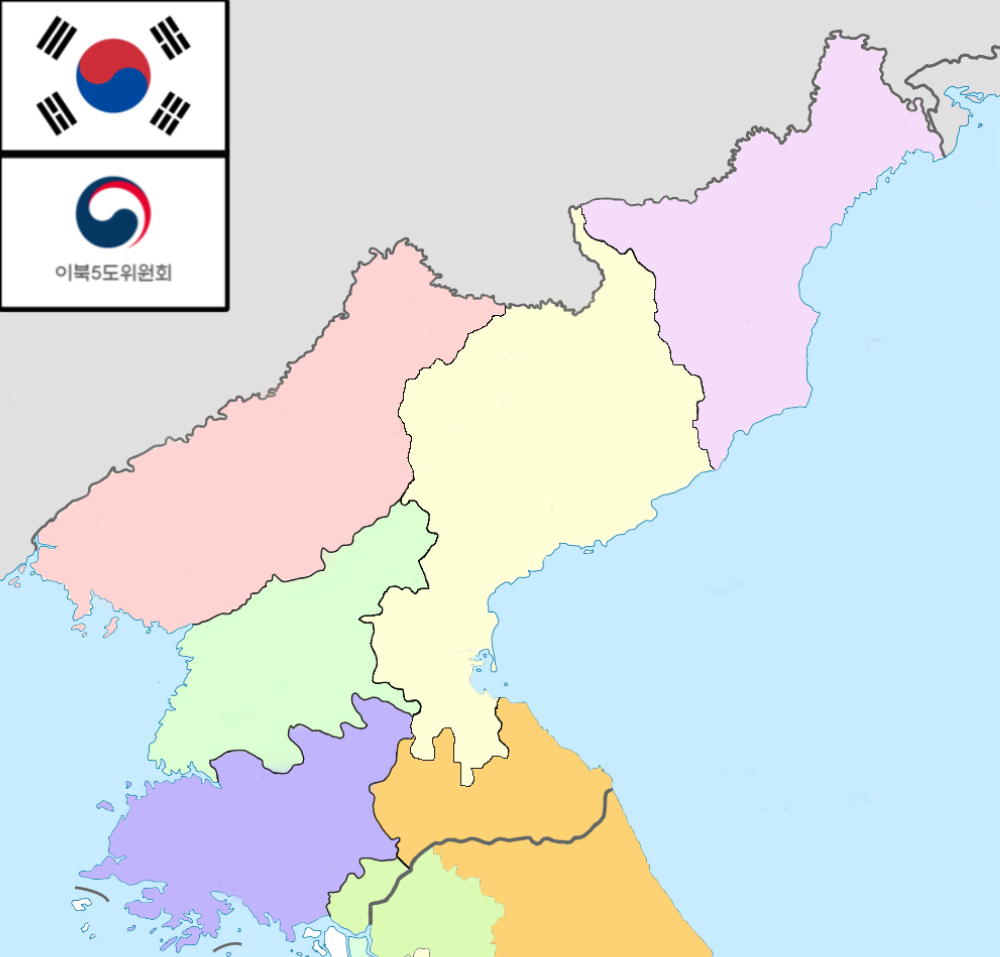

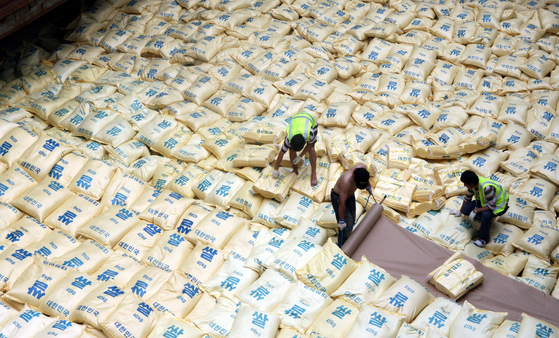
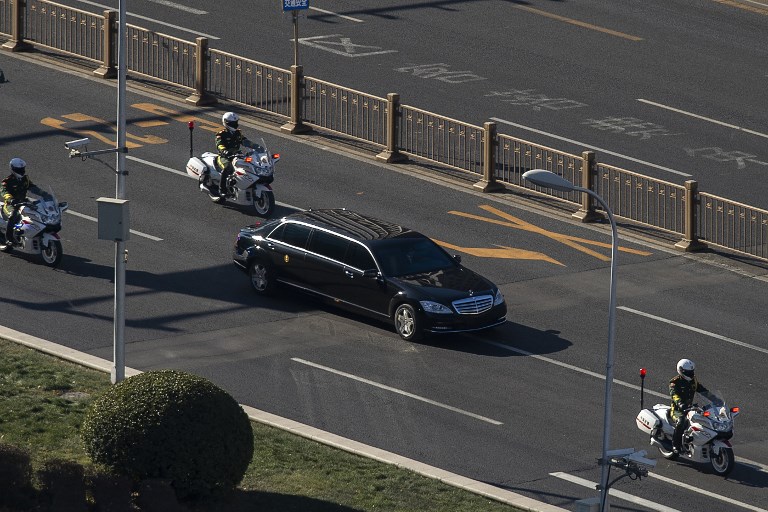






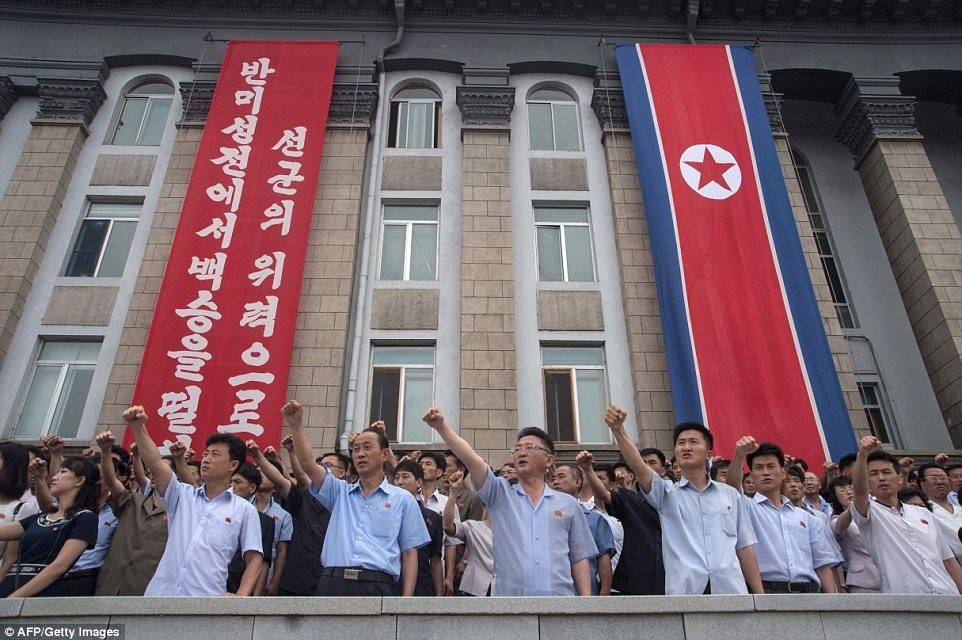
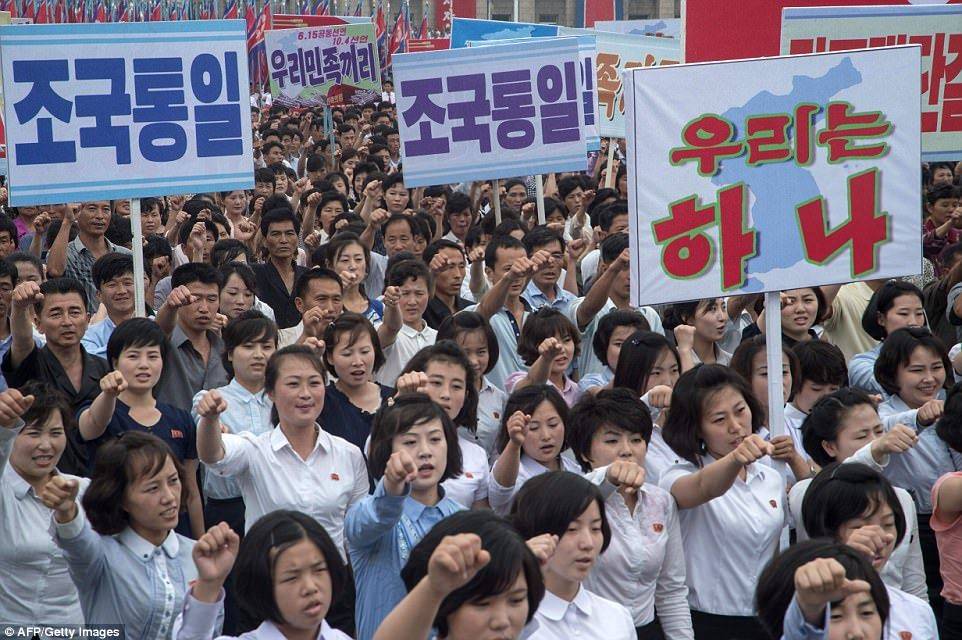

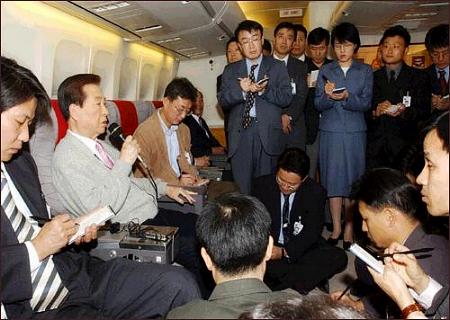


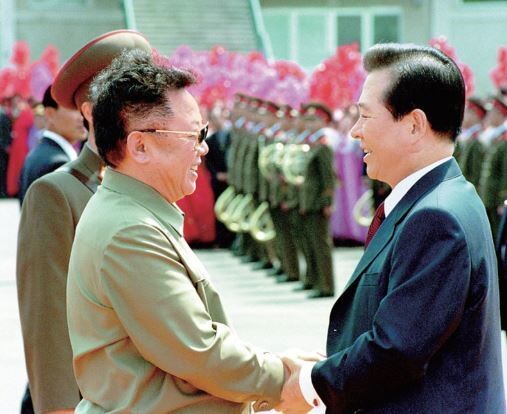
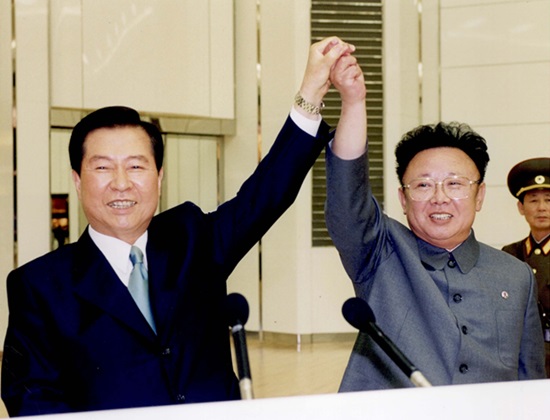


.jpg)
